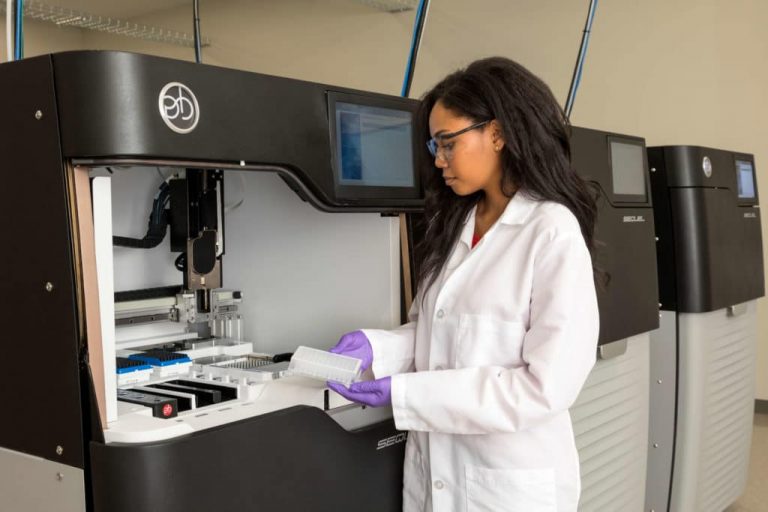
Pacific Biosciences and Rady Children’s Institute for Genomic Medicine (RCIGM) are teaming up on a study focusing on long-read whole genome sequencing of rare disease cases. The project aims to provide genetic answers for patients living with undiagnosed diseases where short-read whole genome or exome sequencing (SRS) failed.
Early results of the study were made available comparing short-read versus long-read sequencing, identified as HiFi sequencing using PacBio’s Single Molecule, Read-Time (SMRT) Sequencing technology. HiFi sequencing was able to uncover more than 2,000 small variants that were discovered by SRS; of these, an average of 37 were missense mutations in known disease genes.
“PacBio HiFi sequencing can identify numerous variants, both small and structural that are not readily detectable by SRS,” said Matthew Bainbridge, Principal Investigator, and Associate Director of Clinical Genomics at RCIGM. “We sequenced this cohort of patients to 10-30X depth of coverage using Pacific Biosciences HiFi long-read technology to assess whether there was an increase in diagnostic rate.”
In rare disease studies, conventional techniques for whole-genome and whole-exome analysis based on SRS typically lead to identification of a causal variant in less than 50% of cases. In this study, which aimed to evaluate the rate at which HiFi sequencing identifies these overlooked causal variants, the SMRT technology generated highly accurate reads of thousands of bases. The team observed that the technology detects disease-causing structural and small variants missed by short-read sequencing platforms.
HiFi reads are produced by calling consensus from subreads generated by multiple passes of the enzyme around a circularized template. In comparison, PacBio’s traditional long reads are generated by a single pass of the enzyme around a circularized template, which allows for overall longer read lengths but lacking the high accuracy characteristic of HiFi reads.
This is just the latest of RCIGM’s many projects and collaborations of its Rapid Precision Medicine program for advancing genetic diagnosis of rare diseases in children – with a particular emphasis on rapid results.
Beginning in 2018, they launched a large-scale whole genome sequencing program, Project Baby Bear, to aimed to provide fast genomic screening of severely ill newborns. In October 2020, RCIGM partnered with Florida’s AdventCare to bring rapid genomic testing to critically ill neonates. And, they’ve teamed up with Deloitte on a project using drones to deliver samples for ultra-rapid sequencing at their lab. This project builds on RCIGM’s history of finding new ways to get to genetic answers. An earlier example is its work with creating an AI automated pipeline to provide a potential diagnosis in less than 24 hours using machine learning for genetic interpretation.
“With this new technology, we are excited to see how many more of these children and families will receive additional insight regarding the identification of potential disease-causing genetic variants,” said Stephen Kingsmore, MD, DSc, RCIGM President and CEO.
“It is an honor to collaborate with the innovative pediatric translational researchers at RCIGM to bring HiFi Sequencing data to bear on some of their most difficult cases of rare pediatric disease and hopefully give patients and families answers that end their diagnostic odysseys,” said Christian Henry, CEO and President at PacBio.











